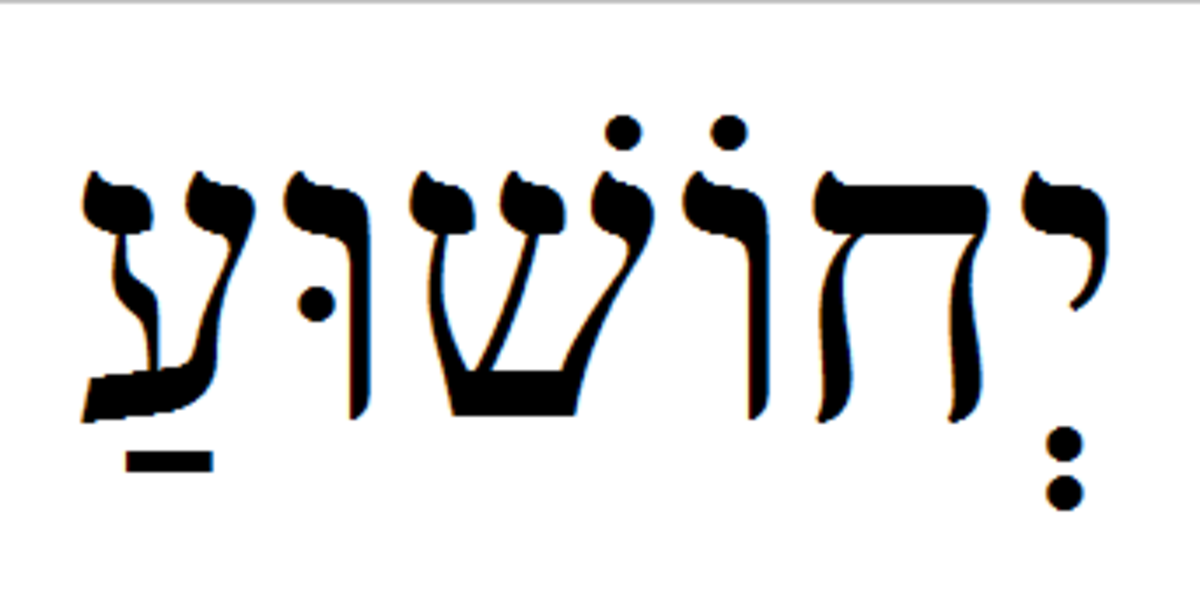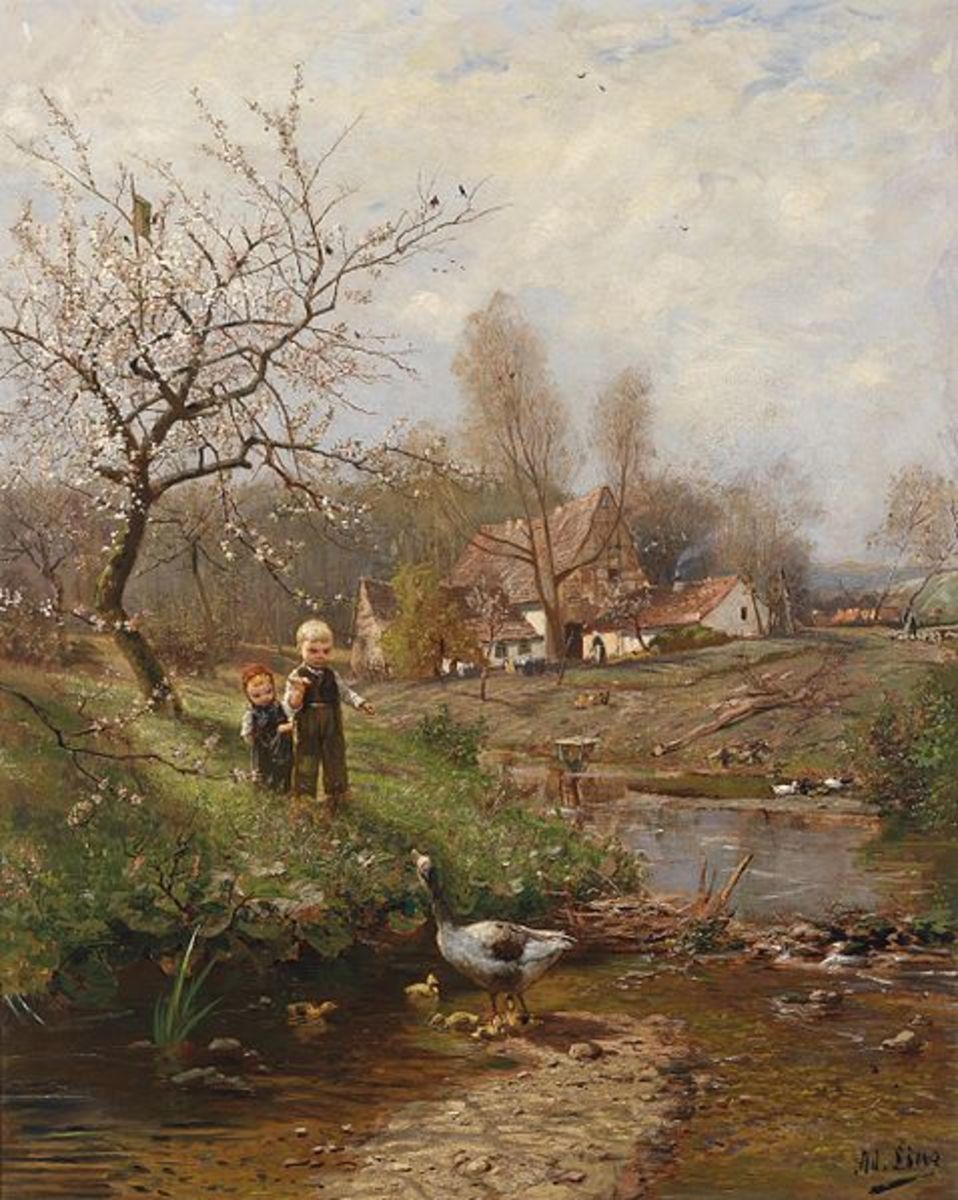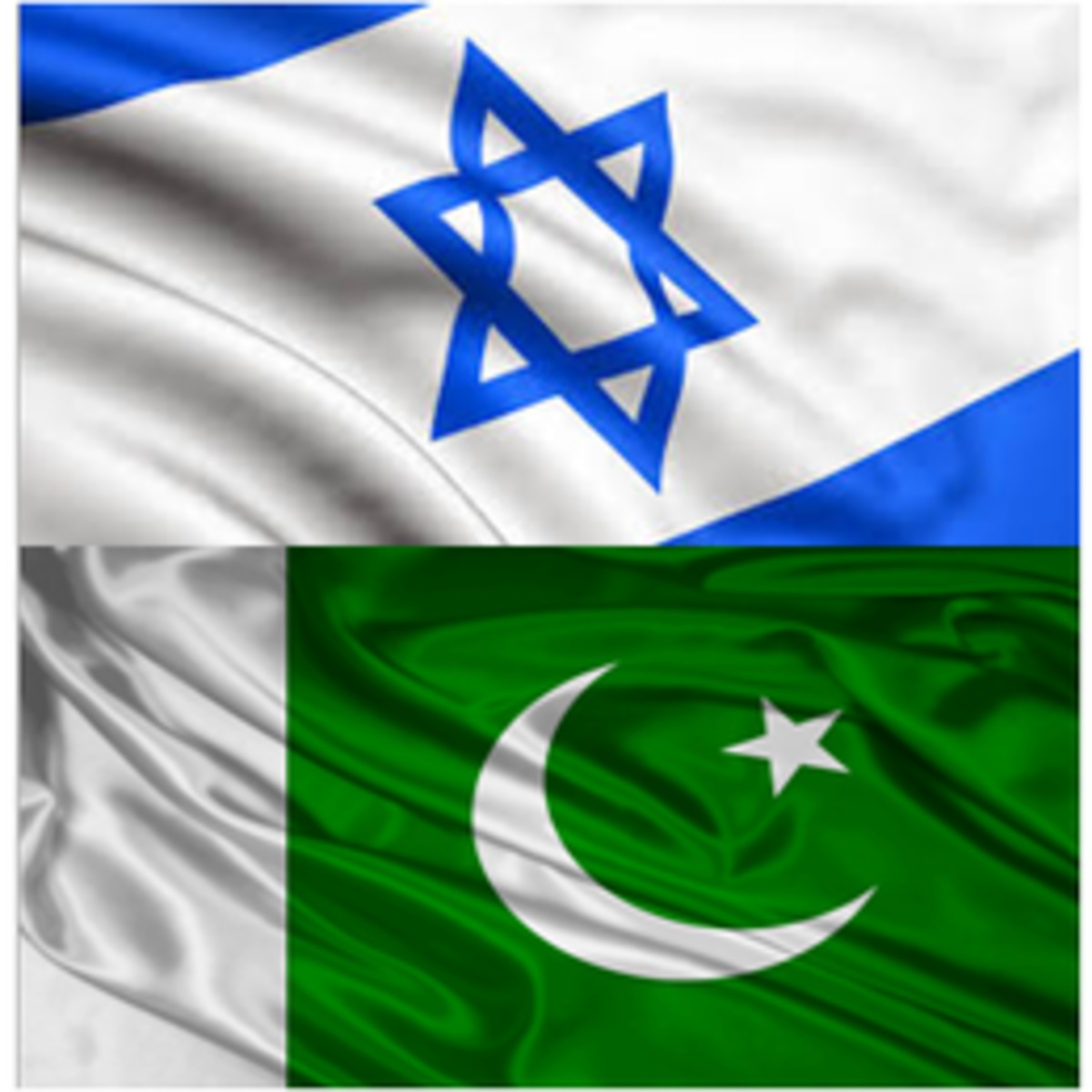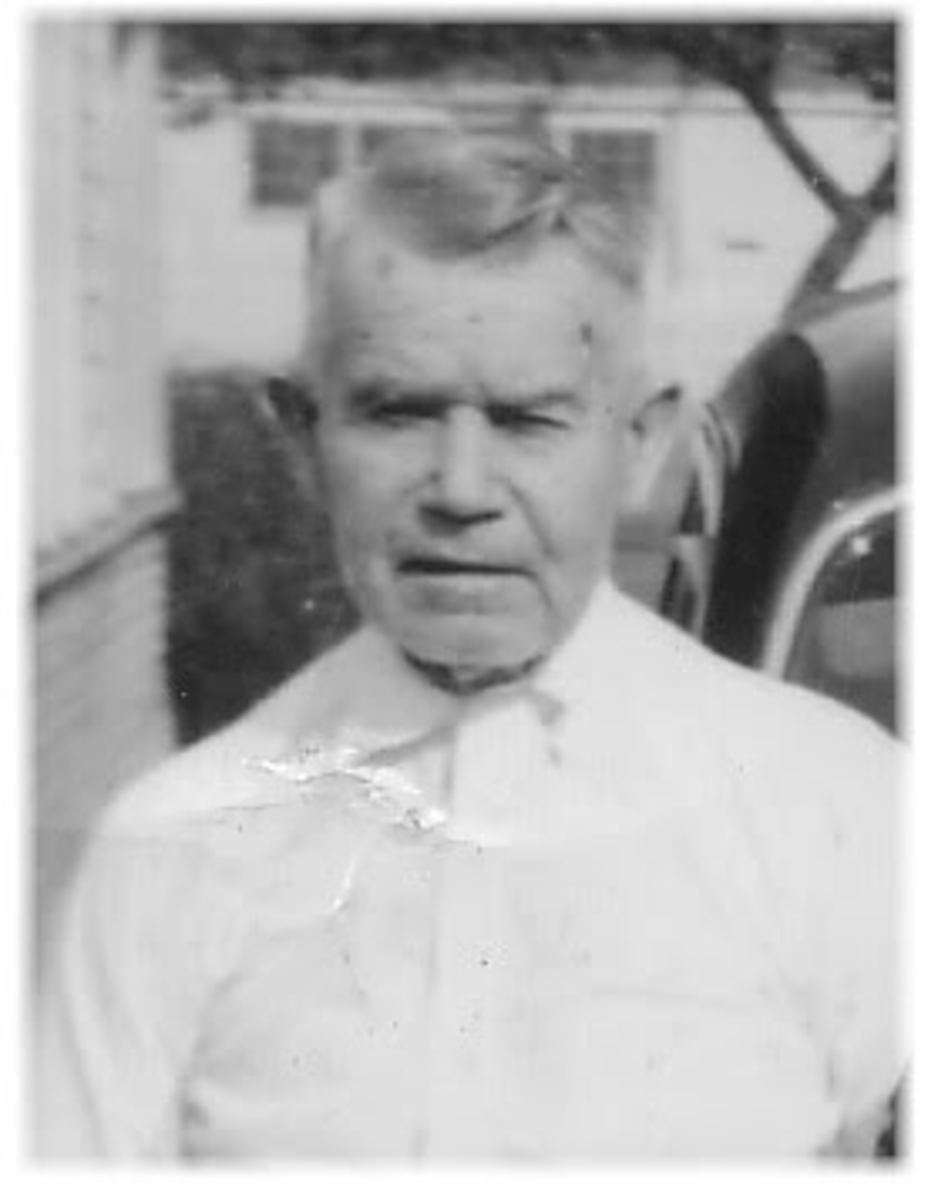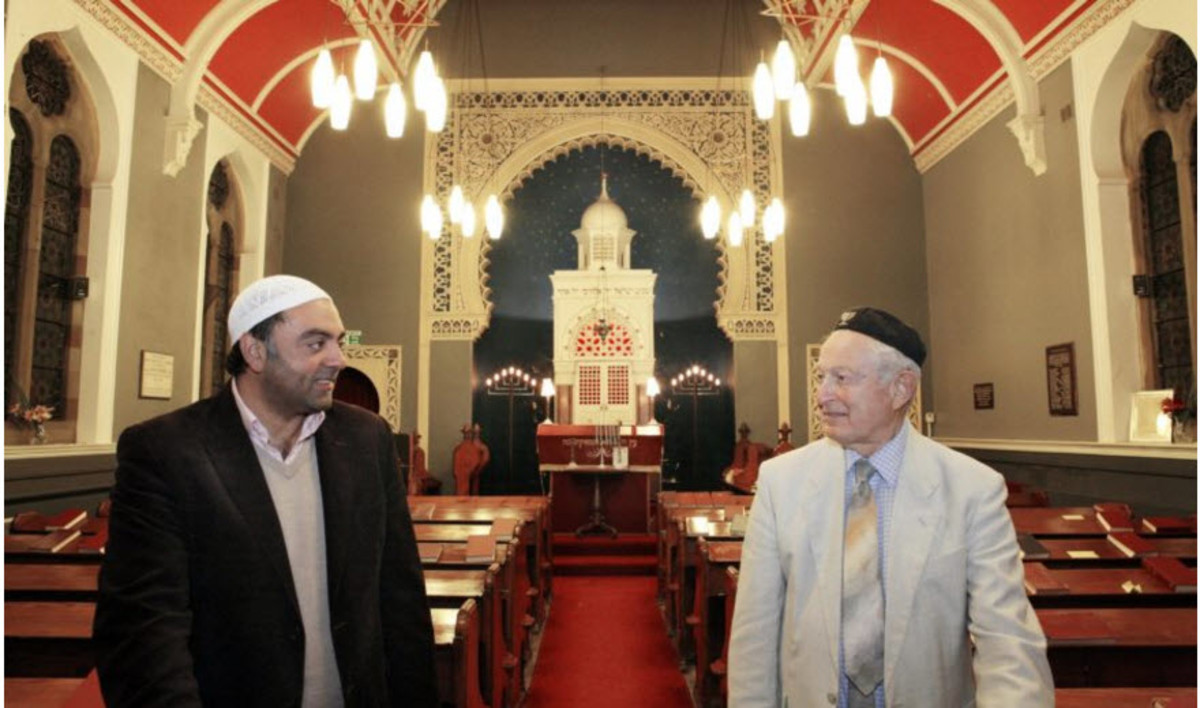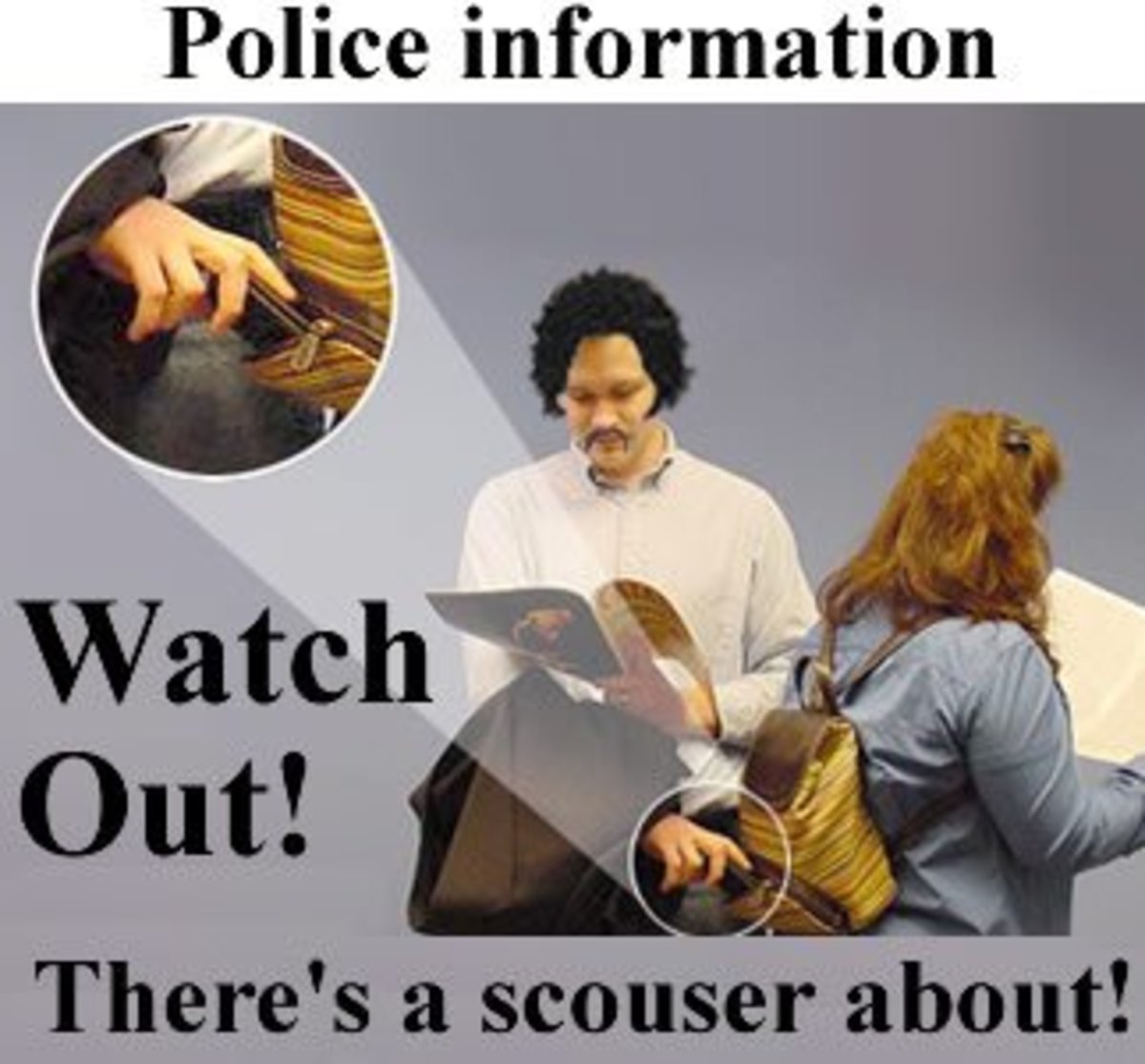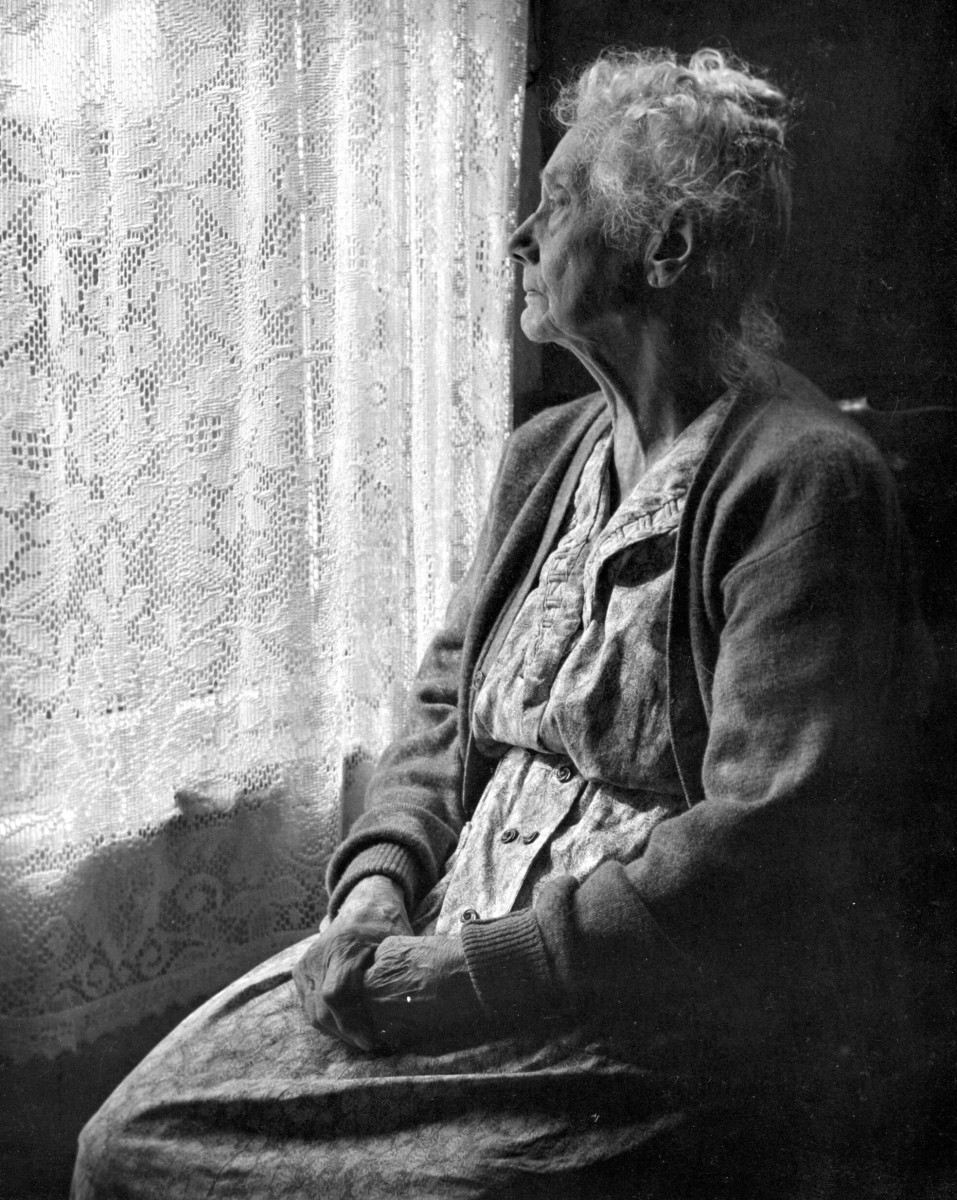My Grandfather's Voice: Recordings of Benzion Katz
Many people have old faded photographs of their grandparents, and old faded memories to go with them. For me, the legacy of my paternal grandfather is better defined, clearer and crisper. I remember my grandfather Benzion Katz for his gait, his smile, the chocolates in his pockets, the scent of his clothing. He wore three piece suits in the hottest weather, and he had an ornate pointer to use when he checked to see if my reading skills in Biblical Hebrew were up to speed. He died when I was eight, but I still remember his voice. Maybe that's partly because we have recordings.
My Grandfather sings
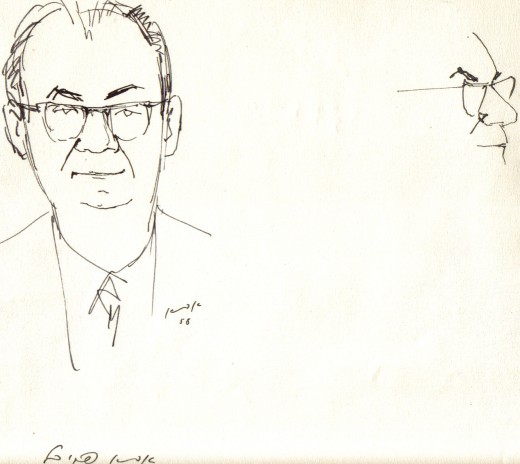
לא ביום ולא בלילה מאת ביאליק
לֹא בַיּוֹם וְלֹא בַלַּיְלָה
חֶרֶשׁ אֵצֵא לִי אֲטַיְּלָה;
לֹא בָהָר וְלֹא בַבִּקְעָה –
שִׁטָּה עוֹמְדָה שָׁם עַתִּיקָה.
וְהַשִּׁטָּה פּוֹתְרָה חִידוֹת
וּמַגדת הִיא עֲתִידוֹת.
אֶת-הַשִּׁטָּה אֶשְׁאַל אָנִי:
מִי וָמִי יְהִי חֲתָנִי?
וּמֵאַיִן יָבוֹא, שִׁטָּה –
הֲמִפּוֹלִין אִם מִלִּיטָא?
וּמַה-יָּבִיא לִי שִׁלּוּמִים:
חֲרוּזֵי פְנִינִים אִם אַלְגֻּמִּים
?
Not in Daytime and not Nightly by Bialik
Not in daytime and not nightly,
I go strolling out so quietly.
Not on mountains nor in valleys,
An old shita tree stands pallid.
And the shita can solve riddles,
And tell fortunes, if you bid her.
I will ask the shita by whom
I'll be wed, who'll be my bride-groom?
And whence will he come a-callin'
Lithuania or Poland?
And what will he bring as bride-price,
Strands of pearls or coral necklace?
(Translated to English by me, equimetrical translation. It is not word for word, but can be sung to the same melody. )
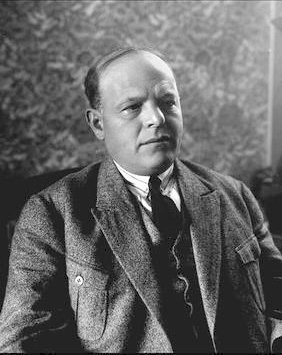
The poem by Bialik goes on, but that's where my grandfather stopped singing, so that's all I translated. My grandfather knew the words by heart, and he sang it all through without any hesitation. In the continuation of the poem the woman goes on to ask whether the man she will marry is dark or pale, a widower or a young man. She says anything but an old man! If he's an old man, she will fall to her father's feet and kiss them and beg him to kill her rather than force her to marry.
I don't think my grandfather forgot those words -- they are quite memorable. But it is typical of him that he chose not to sing them. My grandfather loved beauty and disliked unpleasantness. He preferred poems with upbeat messages, and when something unpleasant intervened, he edited it out. He ended Bialik's poem with the imagined gifts of pearls and coral
In most of the pictures that remain of him, my grandfather is smiling gently to himself, happy in the company he is keeping, but simultaneously in a world all his own, a pleasant, optimistic world.
The Transition from Jews to Israelis
What sort of song is "Not in daytime and not nightly"? It's a Hebrew song, in the sense that is written in Hebrew. But is it an Israeli song? Not exactly. I would say it is a transitional poem, caught somewhere between the world of the Jewish diaspora and the new world in Israel. It is written in Hebrew, but it is about Europe. It is specifically about the life of a person caught in a web of traditions.
Like the songs he sang, my grandtather was a transitional person. He was not a traditional Jew like his grandfather Judah, or his father Shalom. But neither was he a full fledged Israeli, like my father, Amnon. My grandfather Benzion Katz was a Zionist, a pioneer, a member of the desert generation. He helped to create a new world, but he also belonged to the old one.
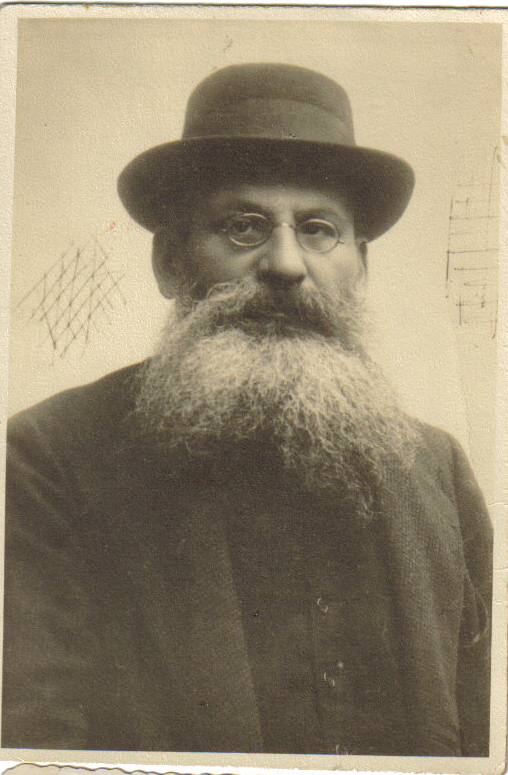
The Katz Children: 1915
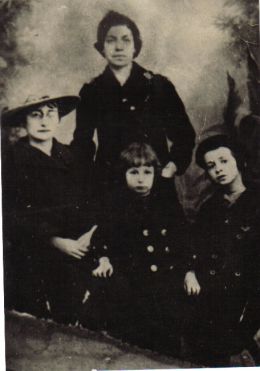
The Back Story
Every story has a back story. Every son has a father. And every grandfather has a grandfather of his own. While it would be hopeless to try to track the entire family history to its inception, suffice it to say that once, long, long ago, my grandfather's people had been free men in their own country. Then they went into exile. They preserved their traditions, but they lost touch with the land. They had been Judeans, but in time they became Jews. They lived in Poland, where they were considered "guests" at best, and parasites at worst. They did not assimilate themselves to the customs of the land, but kept their own weird traditions that became less practical with every passing generation. They vowed never to forget Jerusulem, but in truth they did forget. They were happy to mouth words they did not understand in prayer books that they learned to read by rote written in a language that had long since died.
My grandfather Benzion was the second child of Shalom Katz, a one-legged tobacconist in the small Polish town of Sanok. His mother died when he was still a boy and his elder sister Antonia (called Tonka in family circles) looked after him and his younger brother Juliusz, known affectionately as Julek. According to Irena Narell, Tonka's only daughter, Shalom's father Judah, my grandfather's grandfather, was a rabbi of considerable renown, "whose family had lived in Sanok for several centuries." Judah Katz was the author of a Hebrew text entitled "The Call of Judah" and owned considerable real estate in the town. His wife claimed King David as one of her ancestors. Rabbi Judah was so devout that he would not allow his picture to be taken. Irena writes: "The only photograph taken of his keen face, long white beard and majestic figure is preserved in family albums." It happened that while he was vacationing in Carlsbad, a photographer took his picture unbeknownst to him. When his only son Shalom saw it, he bought the photograph and destroyed all the negatives.
Shalom Katz ran his household by traditional Jewish law, but he was not as devout as his father, and he allowed his photograph to be taken freely. He also lacked the rabbi's keen business acumen, and he was reduced to earning a living by selling tobacco in a small shop. He was usually to be found in his shop,towering over the counter. He always smelled of tobacco and walked with a limp, because of his wooden leg. But in his house the walls were lined with Hebrew texts and German editions of Goethe, Schiller, Lessing and Heine in gold-lettered leather bindings.
While Shalom was an observant Jew, all of his children were avowed atheists who dressed like ordinary people, not Jews, ate ordinary foods, worked on the Sabbath, and pursued higher education and progressive ideals. His daughter Tonka married a socialist. His elder son Benzion became a Zionist. His younger son Julek was a communist.
It could almost have gone the other way. Irena notes that Julek became a communist by way of the left wing branch of Zionism, HaShomer HaZair, while Benzion joined a communist cell before choosing the path of Zionism. But as random as the way in which my grandfather arrived at this path may have been, it seems inevitable that he would have chosen it. It was ready made for his special talents and his personal disposition.
My Grandfather's Hebrew
Like many little boys brought up by observant Jewish parents in the diaspora, my grandfather was sent to Heder (Hebrew "room"), a school in which Hebrew was taught by rote to three year olds. A far cry from today's nursery schools, the Heder imposed iron discipline and required three year olds to sit still for hours on end and learn to read fluently an ancient language that they did not speak. Nor were they ever expected to speak it!
The Heder was a breeding ground for hyperlexia. This peculiar form of learning was highly prized in the Diasporatic community, so that children who excelled at Heder had more opportunity for social advancement. Generation after generation, those who excelled at decoding language and learning how to produce sounds from letters without understanding were promoted, while those who could not do it were selected against. As adults, they were expected to rock back and forth (in the manner of autistics) in their synagogue and read and recite prayers by rote in a sing-songy voice without any kind of conversational intonation. It was form over meaning at its best!
For most little boys, this would be torture! But among them were those who naturally took to the task, and eventually learned to decode meaning as well as sound. My grandfather was one of those. He loved the Bible, and he learned to read it for comprehension as well as sound. He knew Hebrew backwards and forwards, its grammar, its literature, its poetry, and the heroic tales of bygone eras. For him it was no more a religious book than is the Iliad, for all its mention of supernatural intervention in the affairs of man.
In time, when he grew up and went to the University, my grandfather extended his love for ancient languages and literatures to other dead languages: Persian, ancient Greek, Latin. He knew them all.
The Zionist Path
By the time he was in his mid-twenties, my grandfather had a doctorate in classical studies, had written his first book, and was a lecturer in Hebrew studies at the prestigious Jagiellonian University of Kraków. A special chair was about to be established for him in Hebrew Studies. His mentor, Professor Thaddeus Sinko, the "dean of Poland's philologists", according to Irena Narell, advised him that in order to further his career, he should be baptised. In those days in Poland, if you were Jewish, then you were not considered Polish, even if you were born in Poland and had lived there all your life. In order to become Polish, you had to stop being Jewish, and the only way to stop being Jewish was to become a Christian. In order to get out of one faith he did not believe in, my grandfather was expected to join another religion he also did not believe in. That was the practical reality in a country where there was no separation of Church and State and where religion, ethnicity and citizenship were seen as inseparable issues, and all a matter of public record.
My grandfather did not heed his mentor's advice and remained unbaptized. He became a Zionist, so that he could be a free man in his own country, rather than a barely tolerated alien in his native Poland. He married my grandmother, Klara Katz, who had graduated from the Hebrew Gymnasium in Krakow, and they spoke only in Hebrew at home with their son Amnon, in preparation for emigration to Palestine.
In their home, they sang Hebrew songs, like Tschernichosky's "They Say There is a Country" which I have embedded below.
Benzion Katz sings "They Say There is a Country"
אומרים ישנה ארץ מאת טשרניחובסקי
אוֹמְרִים: יֶשְׁנָהּ אֶרֶץ,
אֶרֶץ כולה שֶׁמֶשׁ...
אַיֵּה אוֹתָהּ אֶרֶץ,
אֵיפֹה אוֹתוֹ שֶׁמֶשׁ?
אוֹמְרִים:
יֶשְׁנָהּ אֶרֶץ,
עַמּוּדֶיהָ שִׁבְעָה,
שִׁבְעָה כּוֹכְבֵי-לֶכֶת
נוצצים עַל כָּל גִּבְעָה.
אוֹמְרִים:
יֶשְׁנָהּ אֶרֶץ,
עַמּוּדֶיהָ שִׁבְעָה,
נִכְנַס כָּל הַנִּכְנָס –
פוגש בּוֹ
עֲקִיבָא.
"שָׁלוֹם לְךָ, עֲקִיבָא!
שָׁלוֹם לְךָ, רַבִּי!
מי ומי בקְּדוֹשִׁים,
ואֵיפֹה הַמַּכַּבִּי?"
עוֹנֶה לוֹ
עֲקִיבָא,
אוֹמֵר לוֹ הָרַבִּי:
"כָּל יִשְׂרָאֵל קְדוֹשִׁים,
ואַתָּה
הַמַּכַּבִּי!"
אֵ
They Say There is a Country by Tchernichovsky
They say there is a country
A country full of sunshine.
Where is that there country?
Where is all that sunshine?
They say there is a country.
Its columns number seven.
Seven shining planets,
Sparkling in the heavens.
They say there is a country,
And I do believe it,
Anyone who enters,
Comes upon Akiva.
Hello, there, Akiva,
Peace to you, the rabbi,
Who's among the holy?
And where is the Macabee?
Says to him the rabbi
Says to him Akiva,
All Israel are holy,
And you are the Macabee!
(Translated to English by me, equimetrical translation. It is not word for word, but can be sung to the same melody. )
In the Polish Countryside
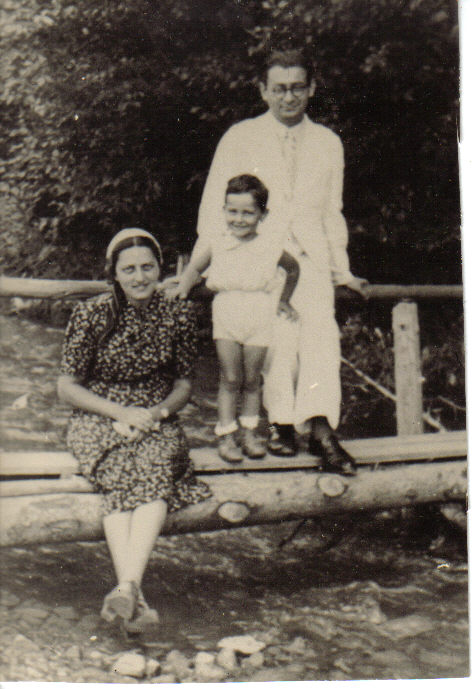
The Road to Palestine
My grandparents were law abiding people, and as much as possible, they did everything by the book. My grandfather had a job offer in Palestine, as a high school teacher in Haifa, but in order to accept it, he needed to be granted permission by the British authorities who ruled over the region. My father writes: "Every year the Palestinian job remained open for my father. Each year his immigration application was denied." My grandfather could have attempted illegal entry into Palestine, as many Zionist settlers did, but that was not his way. So it happened that when the war broke in 1939, my grandparents Benzion and Klara and their four year old, Amnon, were still in Poland.
At first, Klara and Amnon were evacuated to a small town in the Polish countryside, Przeworsk, where Klara's Aunt Miriam was staying. It was believed that the cities would be bombed, so it would be safer for women and children to stay in the country, out of harm's way. After Poland fell, and there were no more air raids, my grandmother thought of returning to Krakow. She hitchhiked part of the way with the German army. German soldiers held four year old Amnon on their laps and offered him chocolate from their rations. My grandmother, who understood German, heard them saying: "These people are fine with us. Wait till the swine from the SS get here.
At one point, when Grandmother Klara thought she needed a travel permit to continue on her way, she went to the newly established SS headquarters to apply. "A German officer on the steps of the building advised her: 'Sister, if you have any brains, you will turn around, walk down the stairs, and not look back.'" (Katz 1999.35) This incident made a strong impression on her, and she changed her mind about returning to Kraków. Instead, she went back to her Aunt Miriam in Przeworsk. In retrospect, this turned out to be a life and death decision. They got there just in time to be herded along with all the other Jewish population of the town across the San river to Sieniawa. The San was the partition line between the German and the Russian occupations. East of the San, they were in Russian territory. All of my great grandparents who stayed in the German occupied part of Poland perished in the holocaust. But Great Aunt Miriam and her family, who were under Russian occupation, survived the war.
Klara and Amnon were eventually joined in Sieniawa by Benzion, and they made their way to Lwow where they spent the fall of 1939. A stealthy border crossing by night, over the Lithuanian border to Wilna was arranged by the remnants of the Zionist movement in Poland. People wanted to persuade my grandmother Klara that she and Amnon should stay behind because such a crossing was not for women and small children, but she insisted on going. My grandmother was strong and athletic and up to the challenge. My four year old father was carried in a sack. He had to remain silent, no matter what happened, or they would all be caught. My grandmother's ingrained paranoia and my father's unusual maturity and self-restraint are the reason they made it out of occupied Poland alive. Throughout it all, it was my grandfather's rosy, optimistic outlook that kept them in good spirits.
They spent a cold winter in Wilnius, finally obtained the certificates that would allow them to enter Palestine legally, took a train to Riga on the Baltic, from there an airplane to Stockholm, Amsterdam and Copenhagen, a train across the low countries into France, and boarded the French troop ship Patria for the Levant. They arrived in Palestine on March 24, 1940.
In Israel
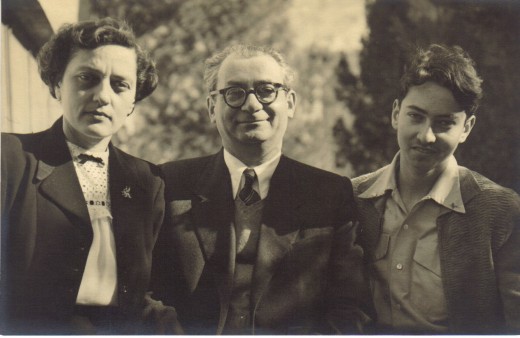
In Morocco
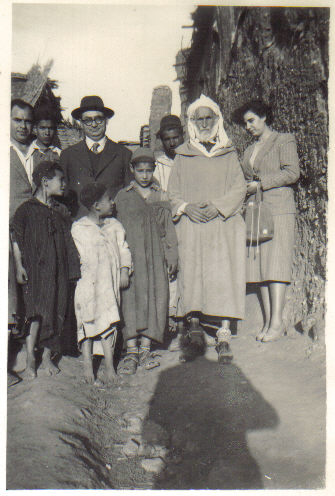
The Generation Gap
Once arrived in Palestine, my grandfather Benzion Katz had to accept many setbacks in his career due to the change of venue. In Poland, he had been a promising young academic, but in Palestine there was no shortage of scholars, and it was years and years before he held another academic position. Instead, he worked for the Jewish Agency by day and translated classical poetry by night. He would come home from a full day's work at the Agency, take a short nap, and then take up his poetry and translation and literary criticism.
He also had many friends among the writers and poets and artists of his day, and they would congregate occasionally in coffee houses and discuss their works. My father was ashamed to be seen with them, for coffee houses were a symbol of the European bourgeoisie, and the younger generation in Palestine never set foot there.
Just as there had been a generation gap between Benzion and his father Shalom, a gap that was evident in the clothing they wore and the company they kept, the same was true between my father Amnon and my grandfather Benzion. My father writes: "For my generation, the language was Hebrew, the color was khaki. Khaki symbolized the principle of functionality. It was suitable for both labor and war." (Katz 1999.37) My father wore khaki shorts and sandals. My grandfather in his three piece suits and formal closed shoes was clearly out of his element in this new world. He was neither a laborer nor a warrior. He didn't really understand the need for war.
When people repeated the slogan "in fire and blood Zion fell and in fire and blood it shall rise again," my grandfather would reply: "Well, I don't see how that follows. Just because it fell in fire and blood doesn't mean it has to rise that way." He was an optimistic dreamer, a member of the desert generation, out of his element among the freedom fighters.
In Palestine of that era, men of the pen, like my grandfather were in greater supply than demand, and what everyone really appreciated were men of the plow or the sword. His work for the Jewish agency involved outreach to Jewish youth throughout the world, and there are photos of him like the one I've posted here from Morocco, always standing in his three piece suit and smiling optimistically, no matter how out of place he looked in his surroundings. But he was a tireless worker, and he always strove to do good.
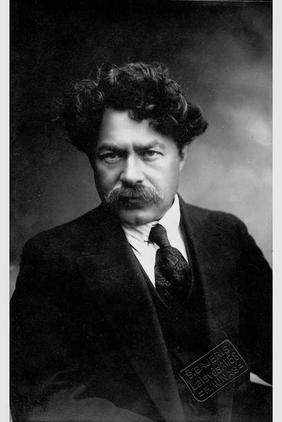
Prosodic Changes in Spoken Hebrew and their Effect on Hebrew Poetry
Among my grandfather's published works are his translations into Hebrew of the Rubiyyat of Omar Khayyam, The Love of Zal and Rudabeh (from the Shah-Nameh) by Firdusi, and The Persians by Aeschylus. His literary criticism includes Metrics in Bialik's Poetry (1943), Hebrew Literature Between the Wars (1953) and Creative Paths (1966). He was the author of the war memoir In Storm and Whirlwind and the collection of poetry Jerusalem Sunsets. He published under the pen name Benzion Benshalom, which means "son of Zion son of Peace." It is also a tribute to his father, my great grandfather, Shalom Katz whose name meant "peace".
Literary prosody was one of my grandfather's areas of expertise. The songs that he sang, based on the words of the transitional Hebrew poets, Bialik and Tschernichosky, were in the Ashkenazi stress pattern, but everyone in Israel used the Sephardic way of stressing words. This created a situation where naive readers trying to appreciate these classic Hebrew poems would completely miss the meter. They knew the poems were supposed to be great, but they did not know why!
My grandfather writes: "Here, in contrast to the situation of the Diaspora, Hebrew was a language not of books, but of life, related to every aspect of existence, penetrating every sphere, divesting itself of old forms and assuming new. ...While in Eastern Europe writers employed the 'Askenazic' pronunciation with an incorrect accent on penultimate syllables, in Israel we have returned to the Sephardic usage. The poetry of the previous period (including that of Bialik Tschernichovsky, Schneuer, Fichman, Shimonovitz, Cohen and Steinberg) was all written for the Askenazic pronunciation, and this has led to a paradoxical state of affairs. When the younger, Hebrew-speaking generation reads this poetry, it reads it without rhythm, for this vanishes when the Sephardic stress is applied." (Benshalom 1953.12)
I am lucky that I had my grandfather sing me those poems, for when they are sung, the meter is unmistakable. You can easily read them wrong, but the melody won't allow you to err in placing the stress on the penultimate syllable of each word.
In Hebrew, the word for "song" and the word for "poem" are one and the same: שיר. It was partly through my grandfather's influence, and the way in which he made poetry come alive, that I came by my own views on meter.

My Grandfather the Rector of the University of Tel Aviv
His niece Irena Narell wrote this of my grandfather: "During the last years of his life he achieved the honor of becoming the rector of Tel Aviv University, as well as the head of its Department of Classical Studies. He brought my mother [Tonka] to Israel . She became ill and, until her death required infinite demands on his heavy schedule... In November 1968 he died suddenly... at age sixty-two after routine eye surgery. His loss was mourned deeply. Said one Israeli newspaper: 'Heads of State, the academic corps, statesmen and students accompanied .... the Rector of Tel Aviv University on his last journey... With his death ends a whole era in the history of the university and its development." (Narell 1996.17-18).
Like his brother Juliusz Katz-Suchy, my grandfather Benzion Katz was also a "deeply political man". Quieter and less flamboyant, he nevertheless commanded attention and traveled among the powerful as well as the artists and writers of his day. He collected artworks given to him by the artists themselves, and he had a file folder full of caricatures of himself dashed off by talented illustrators and cartoonists.
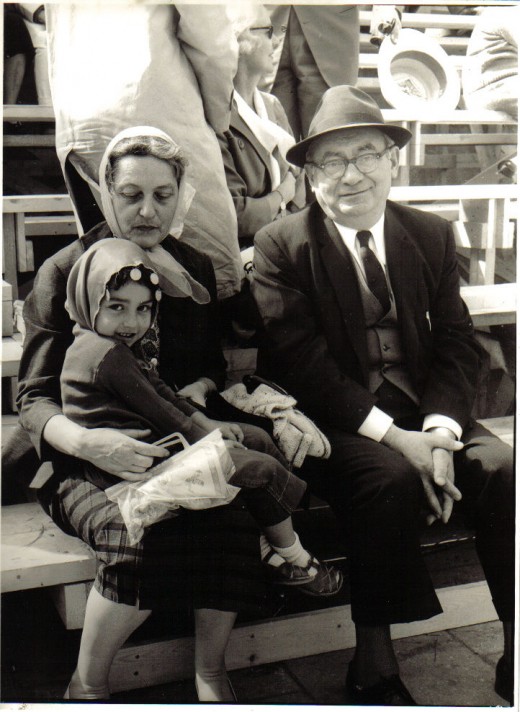
My Grandfather Up Close and Personal
There was Benzion Katz the public figure, and then there was my grandfather. Up close and personal, he never spoke to me of university politics, but he did mention Saka and Daka, two imaginary dogs about whom he embroidered stories. Those dogs, even though they did not exist, were as real to him as any of us, for even on his death bed he was speaking of them.
My grandfather loved real dogs, too, and in his apartment, stray dogs were known to come scratching on the door, allowed to enter, and treated to scraps from the table and sometimes expensive chocolates. (This was before it became public knowledge that chocolate is not good for dogs.) When someone complained to my grandfather that it was not right to give chocolates to dogs when there were war veterans who were going hungry, my grandfather replied: "If the veterans come scratching at my door, I'll give them chocolate, too."
It was true. He would have given anyone chocolate. He always had some in his pockets and was offering to share. He liked to give gifts, too. He would return from his trips from abroad with beautiful trinkets, and sometimes gave the womenfolk in his family strands of pearl and coral necklaces. My grandfather was not particularly well off, but he had a generous spirit, and it was always a pleasant surprise to see him ambling up the way, his hands in his pockets, with a happy smile on his face.
Conclusion: The Legacy of Benzion Katz
Some people claim that in two generations, the memory of a person who was important in his community and to his family can be entirely wiped out. My grandfather was once a prominent man who dined with statesmen and poets and artists, and he helped to found a country, a literature and a university. He translated classical works into Hebrew. He wrote original works of his own. He was an optimistic man who made literature a part of everyday life when he sang the poems of his day. He went on interesting travels throughout the world, and he came home to his family bearing gifts of chocolates and beautiful trinkets. In the world at large, it may be true that his mark is beginning to fade. But as long as we have his books, his collection of art and caricatures, and the recordings of his singing, my grandfather's voice will never be silenced.
References
Benshalom, Benzion. 1953. Hebrew Literature Between the Two World Wars. Translated by W. Lever. Jerusalem: Jerusalem Post Press.
Katz, Amnon. 1999. Israel: The Two Halves of the Nation. Tuscaloosa: Inverted-A.
Narell, Irena. 1996. History's Choice: A Writer's Journey from Poland to America. Oakland: Akiba Press.
Copyright 2010 Aya Katz
Books By Aya Katz
Related Hubs and Links
- http://openlibrary.org/search?q=Benzion+Benshalom
- http://www.rector.tau.ac.il/index.php?option=com_content&task=view&id=10&Itemid=26
- The Buzzard and the Kite: All about Me
My name, Aya, means "kite" in Hebrew. It's not the kind of kite you fly, as in "Let's go fly a kite, up to the highest height". It's the kind that's a bird of prey, as in "The buzzard and the kite have a... - http://www.zemereshet.co.il/song.asp?id=334
- http://www.zemereshet.co.il/song.asp?id=378
- Shamir Ziva, Katz Institute
- Chocolate Under Communism
This is the story of what happens to chocolate when a country goes communist. It is also a story about my family -- or at least the left wing of my family: my somewhat distant relatives who had a fling with... - Reading Comprehension and the Hyperlexic Child
Some children start reading before they are able to hold a conversation. In a sense, they start to read before they can even talk. How is that possible? Reading can be broken down into two separate processes:... - Sanok - A Shtetl in Poland




